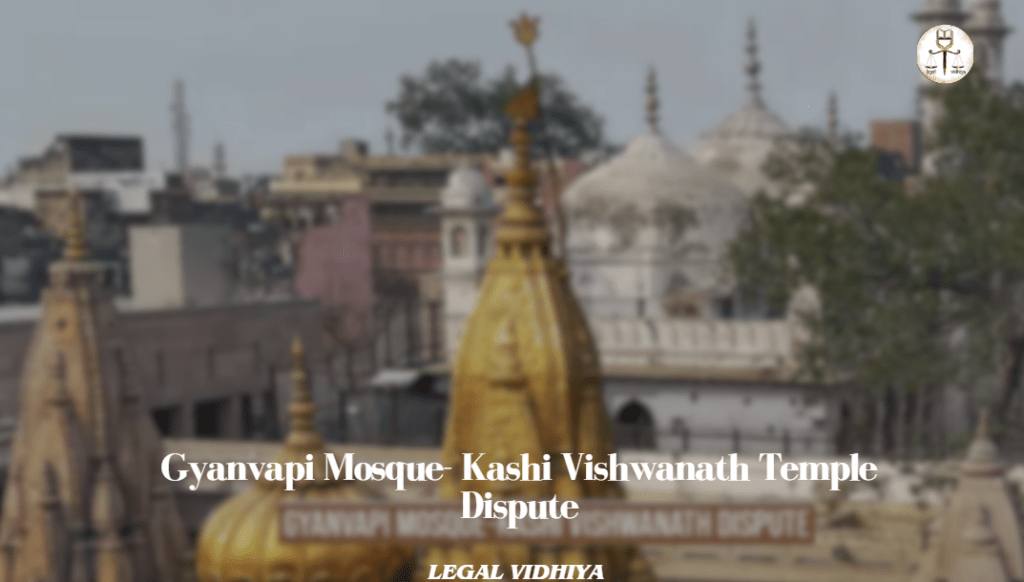
The Varanasi District Court will determine on January 24 whether the Scientific Survey report relating to the Gyanvapi Mosque by the Archaeological Survey of India will be discussed in the public and furnished to the parties engaged in the Gyanvapi Mosque- Kashi Vishwanath Temple conflict.
Gyanvapi mosque is in Varanasi, Uttar Pradesh. The Kashi Vishwanath temple, built in 1780 by Ahilyabai Holkar, the Queen of Indore. Kashi Vishwanath is a prominent temple dedicated to the Hindu deity Shiva. Recent petitions claim that the Gyanvapi mosque lies on the remains of the ‘original’ Kashi Vishwanath temple. Whether this is true or not is uncertain
Case History
In 1991, a lawsuit was initiated, claiming that the Mosque had been constructed following the destruction of a Lord Vishweshwar temple by orders of Aurangzeb. The legal proceedings related to the 1991 lawsuit have been halted by the Allahabad High Court.
In 2021, five female devotees of Lord Shiva lodged a lawsuit requesting the ‘reinstatement of religious rituals at the main location of an ancient temple’ within the vicinity of the Gyanvapi Mosque.
In September 2022, the Varanasi District Judge granted permission for prayers within the mosque complex as requested in the lawsuit, clarifying that the intention was ‘not to convert’ the mosque into a temple but ‘solely’ to secure the ‘right to worship’ at the ‘contested’ site throughout the year.
According to the Places of Worship Act, the crucial factor is the Gyanvapi Mosque’s status on August 15, 1947. If it functioned as a mosque at that time, its status cannot be altered.
On May 16, 2023, the four plaintiffs involved in the Shringar Gauri case submitted a request to the district judge, seeking an ASI survey of the Gyanvapi complex, specifically excluding the wuzu pond area, which had previously been sealed as per the Supreme Court’s order on July 21. Judge Vishvesha sanctioned the ASI survey, emphasizing that it would not contravene the SC directive and would assist in
determining the plaintiffs’ plea to ascertain whether the mosque was constructed upon a preexisting temple.
The ASI survey commenced but was interrupted after four hours due to a stay granted by the Supreme Court, directing the Archaeological Survey of India (ASI) to appeal to the High Court for relief. Subsequently, the Allahabad High Court upheld the district judge’s decision and permitted the ASI survey to proceed at the Gyanvapi Mosque.
What is the Places of Worship Act?
The Act stipulates that the religious character of a place of worship must remain unchanged from its state as on August 15, 1947. It prohibits individuals from converting any place of worship from one religious’ denomination to another. Furthermore, it specifies that ongoing legal cases related to altering the character of a place of worship as of August 15, 1947, will cease upon the enactment of the law, and no new legal actions can be initiated thereafter.
These provisions of the Places of Worship Act will not apply to:
1. Ancient and historical monuments, archaeological sites, and remains protected under the Ancient Monuments and Archaeological Sites and Remains Act of 1958.
2. Cases that have been conclusively resolved, disputes settled by mutual agreement, or conversions of places that occurred through silent consent before the Act’s implementation.
3. Additionally, the law specifically exempts the place commonly known as Ram Janmabhoomi-Babri Masjid in Ayodhya from its provisions. It asserts its supremacy over any other existing law in force.
Anshra Zafar, a 2nd year student of B.A.LLB (Hons) at IILM University, Greater Noida, 4th Semester. An intern under Legal Vidhiya.
Disclaimer: The materials provided herein are intended solely for informational purposes. Accessing or using the site or the materials does not establish an attorney-client relationship. The information presented on this site is not to be construed as legal or professional advice, and it should not be relied upon for such purposes or used as a substitute for advice from a licensed attorney in your state. Additionally, the viewpoint presented by the author is of a personal nature.




0 Comments